Time to read: 7 minutes
Today we introduce you to Innovator, Creator, and Educator Elena Corchero
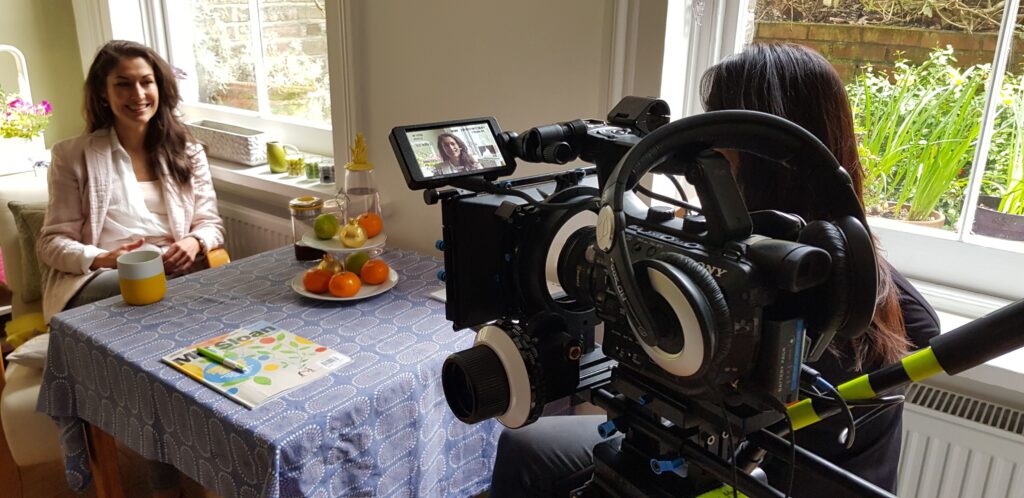
What do you do? What is unique about what you do and how do you stand out in your industry?
I specialize in emerging technologies and I work with big corporations, companies and institutions to help them adapt and adopt those emerging technologies.
What makes me different from other futurists or researchers is that I am hands-on. Very few people truly understand what is behind technology and hardware, not just software. When I say I’m hands-on I mean I test every product myself, I code, I do electronics. For example, I am currently researching/testing all the technologies that we will need to create successful hybrid events, where half of the participants are physically present in the space and the other half are joining digitally. A past project was creating a physical installation of a robotic remote surgery over 5G Networks for Ericsson, for the Mobile World Conference in 2017. That research was a collaboration between myself, Ericson, engineers and Kings College, a very interesting and hard project when it came to managing all the different partners.
What inspired you to go into this direction? What was your inspiration?
I grew up in a family with a dad interested in science and a mom in arts. When I first had to choose my career, I thought it was difficult because I could not choose between being a fashion designer or an engineer. I was lucky though to have experienced that science and art can co-exist. I started a career in wearable technology. That was back in 2005 and even though I thought that wearable technology was around the corner, it turned out to be a little too early. So I had to pivot and use my skills to find something else. I turned to Consultancy for Innovation.
I worked with such a wide variety of businesses from Automotive, Technology, Art to Television and Medical, that I can truly join the dots between industries. Also, I have always had a strong corporate-social responsibility angle and these are crucial for futurism, to be able to see the bigger picture. I call my work meaningful innovation, not just innovation for the sake of it, using technology not for the sake of it, but using it when it is meaningful.
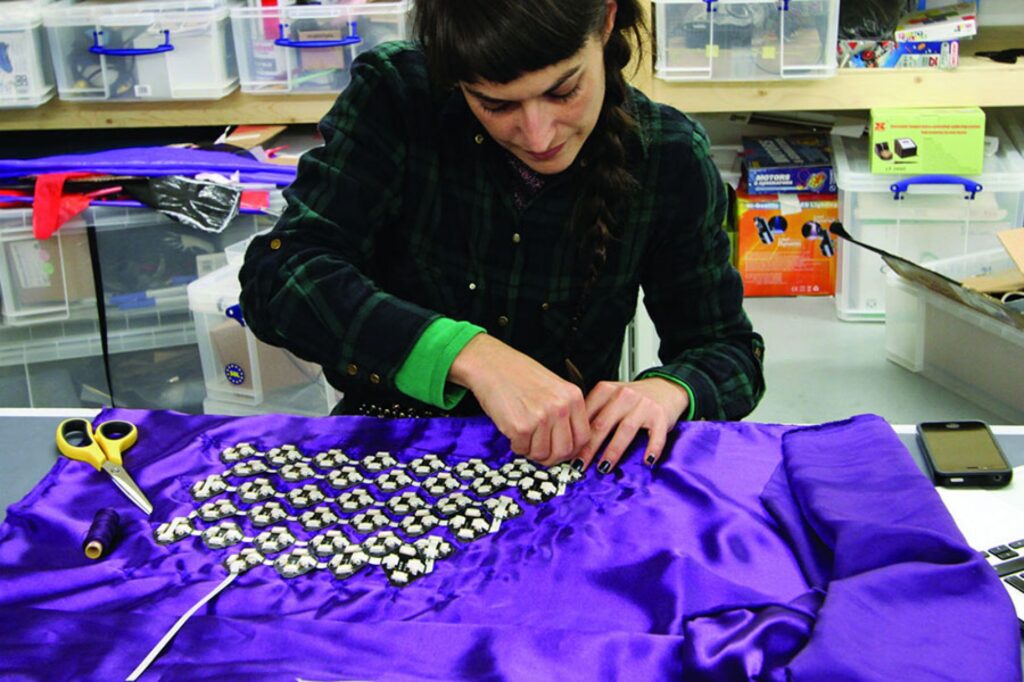
What is the most challenging aspect of your work?
Something that has been alleviated now with the pandemic, crazily enough! My biggest frustration has always been to work trying to push for future technologies and always feeling that what I propose is too far away and people are not willing to innovate. So I learnt that to pitch an idea, I have to remember that not everyone is an early adopter and try to introduce concepts through their perspective, so as to remove human barriers, such as “it’s too early for this type of technology”, or “the price is not right”, excuses which most of the time mean that we, humans, are not ready.
But with the pandemic, people that would never touch technology before or had friction or fear, have lost that resistance, and are now much more open to use technologies and learn. So, what companies are realizing now is that technology can move much faster if we want to, or if we feel the need to. I really think there are less barriers to technology literacy and innovation than ever before.
When you look back what is a challenge that you faced in your career and you overcame?
A few different things. I think some people when they are looking into their careers, they’re trying to identify their passion, which can be difficult to pinpoint. I was kind of the opposite; I knew my passion and where I could add value to society, but I was lacking an understanding of business and how to run it. I went solo and became a female founder of a hardware business. It was difficult to look for investment, there were too many blocks.
Investors were happy to invest in software but not in hardware and they also wanted to control how many projects I do and when. So I had to make a lot of tough choices to stick with what makes me feel engaged, productive and happy. I still wonder to this day whether things could have been different if I had had a co-founder, while today there is more gender-balance. Anyway, the main point is, back then hardware businesses were just not the thing.
I have found consultancy being very rewarding. Of course, it is hard because not everybody wants to take the risk and innovate, but it has allowed me to maintain a broad portfolio of projects where every day is different, and I promote my vision in different industries.
What would you say was your Mount Everest, something that you always wanted to conquer?
I always wanted to be a lifelong learner and that’s exactly what I do. For example, I’m now learning computer vision. I bought a camera, which I have to learn to program so that it detects objects to understand its surroundings. I do take on new challenges all the time. My plan also for this year is to have a greater public presence, be a fun influencer on social media, an approachable person for the younger audience. I want to be a thought-leader and a role-model for younger girls in science and technology. I want them to see themselves in me.
I’m also considering writing my first “guide to innovation” book, and the big BIG dream is to re-establish a lab one day and continue giving workshops and teaching electronics to girls. I used to have a studio in London so I just hope I can get back to it. My long-term dream though, kind of my retirement plan is to create a lab for longevity technologies focusing on wearable technology, prosthetics and implants, which is also where I started my career. A lot of the new technologies are heading that way nowadays so that could be an opportunity for me to get back on it.
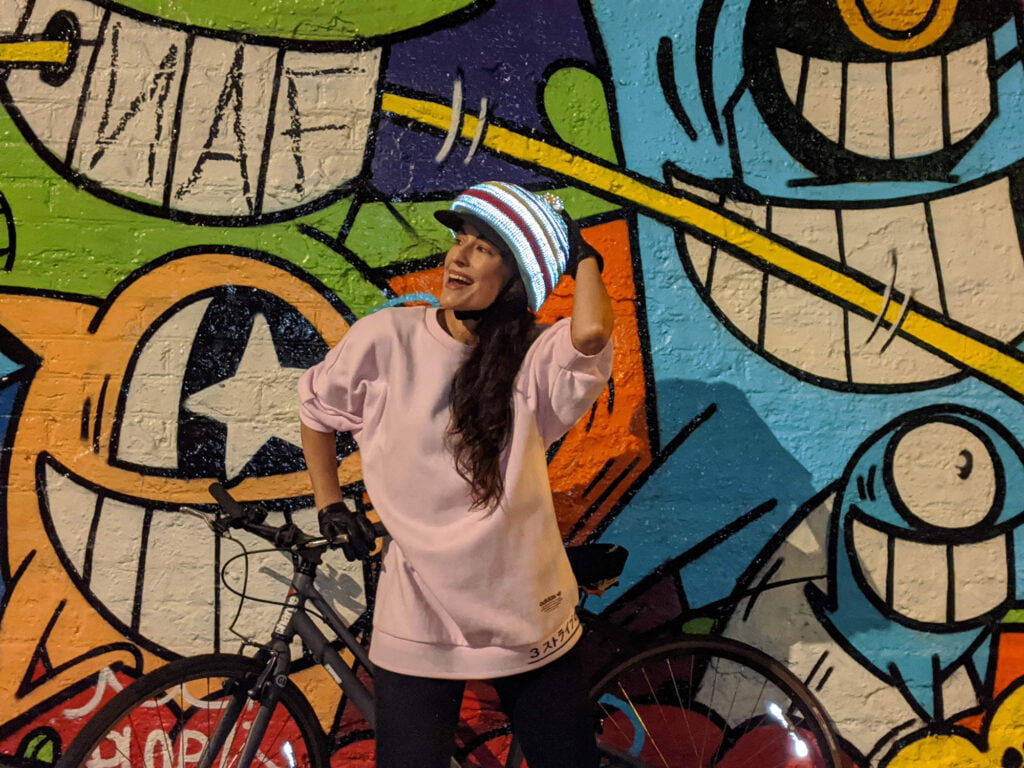
What is the most inspiring thing that happened to you as a result of iDiscover?
What iDiscover mainly did for me was to help me realize that if I hadn’t had the feeling of being rejected at home, I would not have pushed my career forward the way I did. That was a revelation and I feel thankful for that, it made me more confident and balanced. iDiscover gave me self-awareness and the emotional intelligence to deal with all sorts of situations and I use the tools daily until today. Also, I reviewed the way I value my work, because like many people who work in art, I was impact-oriented having a conflict with valuing my work in a monetary way, not understanding how money will help me get there. iDiscover helped me get where I am now, not to feel that monetary value is something I don’t want to be associated with and I realize that valuing my work correctly is partly what I need to create impact.
What does the iDiscover community mean to you?
Let’s say I stayed in London because I realized everyone I met here had a lot of ambition and worked hard for their dreams. I would say that there is a certain type of person that London attracts, and it is the same type of person that iDiscover attracts too. I think the iD community is a strong community whose members value their everyday experience, their interactions with others, and their contribution to the world in new ways.
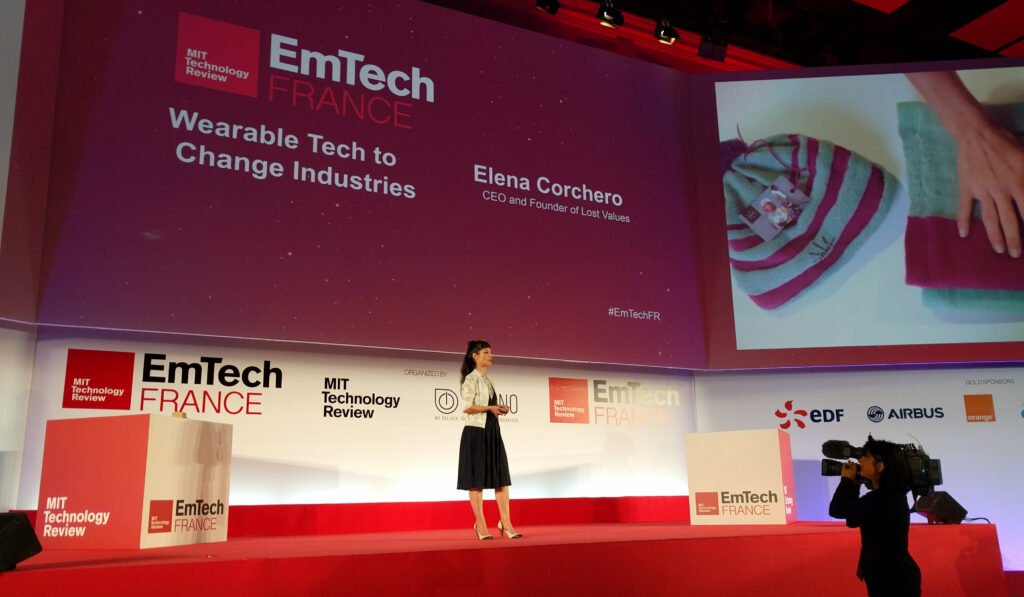
What is your most sacred daily, weekly or monthly ritual that really works for you?
I’m not the most routinely person as I don’t manage too well within a routine. I enjoy being physically active as it wakes up my brain. Also, I take a break when I need it. I also reflect at night and I write one line a day, which I highly recommend. It is like writing a tweet every day for a year and then the next year you start over in the next line, so you can see where you were the year before. I’ve started a 5 year one this time. It’s a great insight, it helps me see my successes and be more aware of what I have overcome or where I am stuck. Lastly, I make a spinach, kale and ginger juice every morning!
What are your guilty pleasures?
I have been struggling with a sweets addiction! I keep trying to quit, but I don’t seem to be able to haha! In the summer, my favourite is ice cream and in winter it’s pistachio macaroons.
What is your best adventure yet?
I think running your own business and putting a product on the market is the biggest adventure! Nothing beats that.
In terms of traveling, I am dying to go to Japan but I believe Lanzarote in the Canaries, where I was born, is one of the most beautiful places and a lot of people agree. We have the auditorium in the volcano and the blind crabs, which are no secret anymore, but both are incredible!
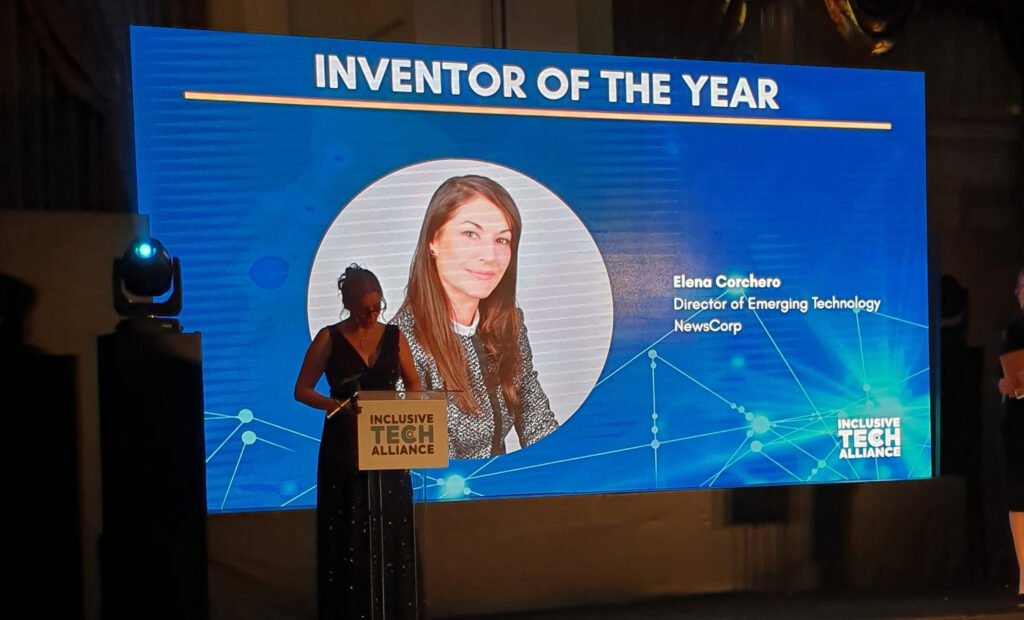
What is a favourite quote, or a question you want to leave us with?
I have a quote that is part of my daily routine, which is “if you want something you never had, you have to do something you never did before” and that’s kind of my mantra. To understand when you need to get yourself out of your comfort zone in order to get there, instead of complaining about what you don’t have. I think it applies to everyone and everything.
And I have a question which came through iDiscover and has helped me a lot.
I was trying to understand if I want money or fame, and I realised it’s not how much I want to gain, but what I would do with that money or influence to impact the world if I had it. I use this question to help my friends, don’t just compare yourself to your hero or your role model and try to get there. Ask what impact you would want to have if you were already there.
Find out more about Elena’s projects through her Youtube channel and website.
